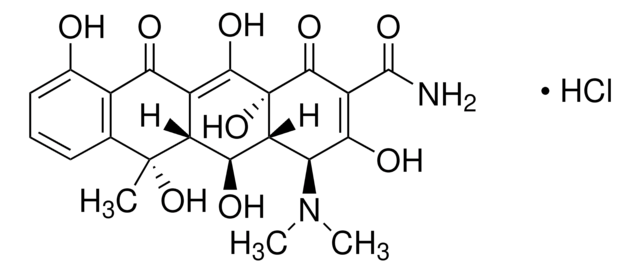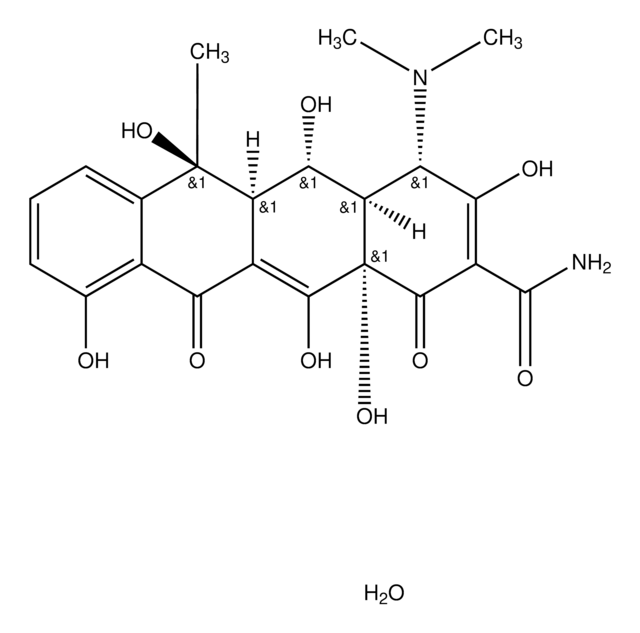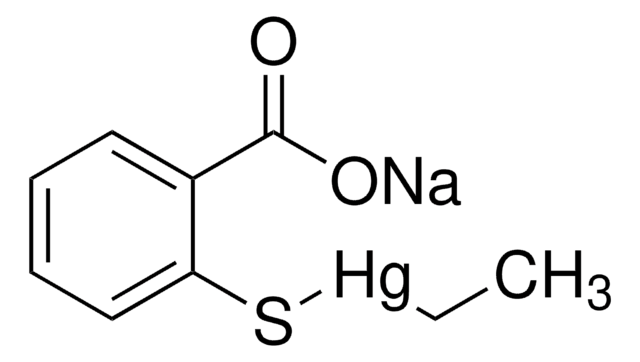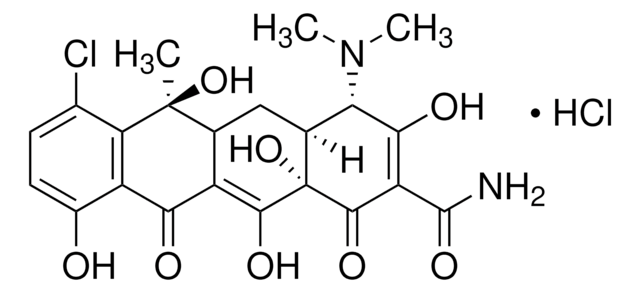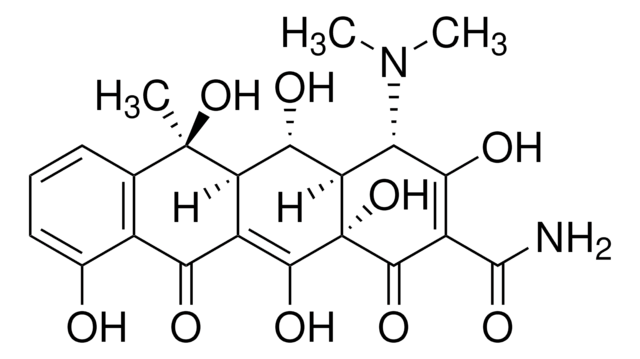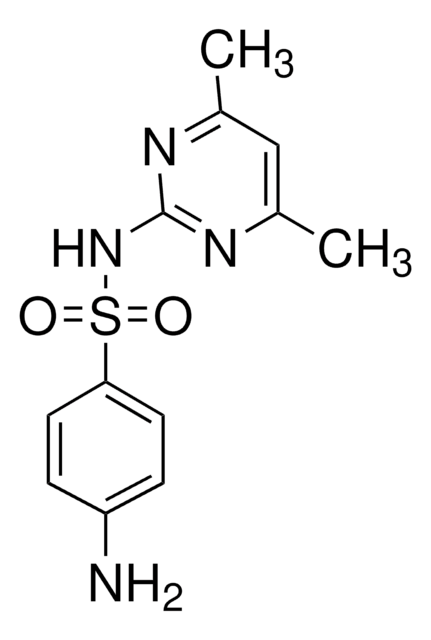1491015
USP
Oxytetracycline hydrochloride
United States Pharmacopeia (USP) Reference Standard
Synonym(s):
5-Hydroxytetracycline hydrochloride
About This Item
Recommended Products
grade
pharmaceutical primary standard
API family
oxytetracycline
manufacturer/tradename
USP
application(s)
pharmaceutical (small molecule)
format
neat
storage temp.
−20°C
SMILES string
Cl.CN(C)[C@H]1[C@@H]2[C@@H](O)[C@H]3C(=C(O)[C@]2(O)C(=O)C(C(N)=O)=C1O)C(=O)c4c(O)cccc4[C@@]3(C)O
InChI
1S/C22H24N2O9.ClH/c1-21(32)7-5-4-6-8(25)9(7)15(26)10-12(21)17(28)13-14(24(2)3)16(27)11(20(23)31)19(30)22(13,33)18(10)29;/h4-6,12-14,17,25,27-29,32-33H,1-3H3,(H2,23,31);1H/t12-,13-,14+,17+,21-,22+;/m1./s1
InChI key
UBDNTYUBJLXUNN-IFLJXUKPSA-N
Looking for similar products? Visit Product Comparison Guide
General description
Application
Analysis Note
Other Notes
related product
Signal Word
Warning
Hazard Statements
Precautionary Statements
Hazard Classifications
Repr. 2
Storage Class Code
11 - Combustible Solids
WGK
WGK 2
Flash Point(F)
Not applicable
Flash Point(C)
Not applicable
Choose from one of the most recent versions:
Certificates of Analysis (COA)
Sorry, we don't have COAs for this product available online at this time.
If you need assistance, please contact Customer Support.
Already Own This Product?
Find documentation for the products that you have recently purchased in the Document Library.
Customers Also Viewed
Our team of scientists has experience in all areas of research including Life Science, Material Science, Chemical Synthesis, Chromatography, Analytical and many others.
Contact Technical Service